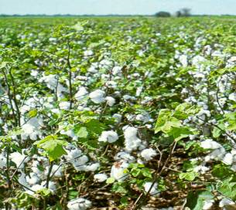Textile polymers and raw materials
Search line summary

The properties of natural and chemical fibres for textile application are studied. These properties refer to its microstructure and this is related to its physical, mechanical, thermal, chemical and sorption properties.
The most important have been the works relating to wool, cotton, viscous and other artificial and polyester fibres, polyamide, acrylic and polylactide as the most studied among synthetic fibres.
The change of microstructure and fibres properties has been studied with all the variables of their processing.
New techniques are also being developed for characterizing and adapting techniques already used with other fibres for the new fibrous polymers, mainly from new sources of natural fibres. Its suitability is studied and the appropriate treatments are made for its treatment in spinning, weaving, dyeing and finishing and also in the processes of non-woven textile structures.
The objective in this case is to achieve the prototypes design from new materials and characterize their properties in order to find new sources of raw materials for commercial application.
The functionalization of conventional and new technology materials, with various techniques, to obtain new properties is also studied (see the corresponding line of research).
Main lines of research
- Natural fibres
- Chemical fibres
- New renewable raw materials
- Functional polymers
Projects/Agreements
- Obtaining high-performance composites by including nano and ceramic micro particles in polyester fibres.
- Microstructure, characterization and properties of polylactide fibres.
- Thermal industrial treatments of polyamide 6.6. Modification of microstructure and its relation to processing variables.
- Manufacture of new polymer structures for automotive.
- New methodology to apply microcapsules to the fibrous vein.
- Optimization of the production process of Aramid fibres.
- New applications of XLA fibres.
- Plasma application in polymeric materials
- Development of spinning techniques to process vegetable fibres, of unconventional use, in order to take advantage of natural resources in sustainable way.
- Treatment of fibres residues, obtained from the entire textile process, for reuse.
Services
- Characterization of polymers properties.
- Opinion about fabrication defects of polymers.
- Prototypes fabrication.
- Adaptation of conventional spinning system to new fibres.
- Recycle techniques of textile waste.
-
Share: